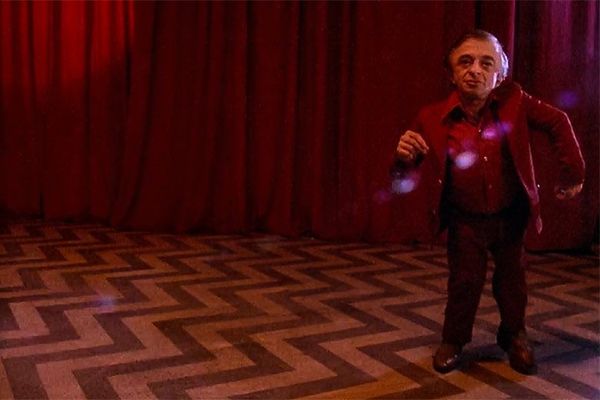Eye For Film >> Movies >> Twin Peaks (1990) Film Review

Twenty-nine episodes long, at 47 minutes an episode, the complete Twin Peaks is no meagre undertaking, so don't take it lightly when I say that the best way to watch this is all in one go. With a great abundance of food, of course - there's a list out there on the internet to help you - and with some damn fine coffee.
However you choose to consume it, Twin Peaks is not the sort of story that will let go in between episodes. It will haunt you for a long time, and every time you rewatch it you'll discover new things. If you're familiar with the work of David Lynch, this may not come as too much of a surprise. Where most film directors would quail at the thought of stretching themselves over such an expanse of work, Lynch launched himself into it with a passion, and, though there is a little awkward padding in places due to the removal of a subplot considered inappropriate by star Kyle MacLachlan, there is more meat to each episode of this than you'll find in a dozen average movies taken together.

Twin Peaks is a small town in the northern US, close to the Canadian border, where everybody knows everybody, the pace of life is gentle and the air is filled with the scent of Douglas firs. When homecoming queen Laura Palmer is brutally murdered, the local law enforcement team realise they're out of their depth and welcome the arrival of clean-cut, coffee-loving FBI special agent Dale Cooper (MacLachlan). But the monster Cooper is chasing may be something quite different from what anyone expected, and, as the story evolves, it becomes clear that he has demons of his own.
Defying easy genre classification, Twin Peaks is a complex, literary tale that draws together ideas from disparate sources and is always veering off in directions at once unexpected and - if one considers carefully what one has already overlooked - entirely logical. It's a fairy story of the Grimm type, a soap opera packed with complex subplots, a murder mystery, and a romance.
Laura Palmer is named after a girl at the observatory in Rebel Without A Cause, but her name also recalls Laura, the Otto Preminger film in which a detective falls in love with a dead woman. Despite her death, Laura Palmer is omnipresent, a beloved one, a sacrifice, a scapegoat for the town's hopes and fears, and perhaps its salvation. One thing is for sure - as the darkness closes in around this seemingly idyllic community, no-one will remain untouched by evil.
It's said that Mark Frost and David Lynch once had a script about Marilyn Monroe and the Kennedys that no studio was prepared to touch, so they reinvented it as Twin Peaks. There are certainly hints that what they have to say reaches far beyond the confines of their invented world. Here they say it through myriad quirky, entertaining, loveable, hopeless, terrifying and unforgettable characters, superbly brought to life by a perfectly chosen ensemble cast. Twin Peaks is at times tremendously funny, and it's almost always engaging, but it's also, if you let it in, one of the most disturbing pieces of filmed art you will ever encounter.
There was supposed to be a third section to Twin Peaks, but due to studio pressures it never got made. The story was therefore completed in the film Twin Peaks: Fire Walk With Me, which (if you follow it carefully) will tie up most of those loose ends for you. It's a prequel, yes, but it's also a conclusion. Twin Peaks has a flexible chronology rather like Primer does, though more subtly so. Fans may also want to hunt down the books The Secret Diary Of Laura Palmer and The Autobiography Of Special Agent Dale Cooper: My Life, My Tapes.
Reviewed on: 06 Feb 2009
















